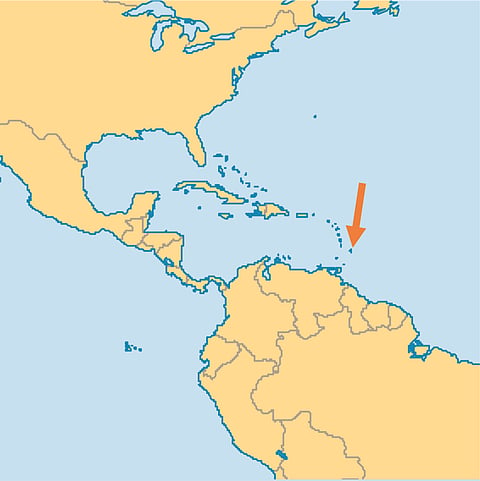
- Home
- न्यूजग्राम
- NewsGram USA
- India
- World
- Politics
- Entertainment
- Culture
- Lifestyle
- Economy
- Sports
- Sp. Coverage
- Misc.
- NewsGram Exclusive
- Jobs / Internships

By Romar Parris
FOR OVER 100 YEARS, Barbados has been home to immigrants from East India, specifically Bengal, Gujarat and Hyderabad Sindh. Over the years, they have played a significant role in shaping Barbadian culture and contributed to the advancement of the Barbados economy.
They still maintain this role today. Unlike our African ancestors, the Indians residing in Barbados today were not brought here through means of slavery or indentured labor,infact, they came of their free will.
In the early 1900s, the underprivileged of India (then a colony of Britain) were in a very bad state. Being poor and without land, they found it very difficult to acquire wealth and status. Many poor Indians lived in small villages owned by landlords while having to "work like slaves for about 50 cents per week" (Nakhuda 2013:11).
Diseases such as cholera, smallpox and leprosy were common among the impoverished. Seeking a better life, many Indians travelled to Mauritius, Fiji, South Africa and other countries. However, the West Indies saw its first movement of the East Indians prior to this 20th century migration. After slavery was abolished across the British colonies in the Caribbean around 1838, a call for indentured labourers was made, particularly in Trinidad and Tobago, Guyana, St Lucia, St Vincent, Jamaica and Grenada.
The British brought East Indians to these islands to work the plantations since the newly freed slaves no longer wanted to be a part of the plantation system. None of these East Indian labourers was brought to Barbados, however. The British brought in "poor Whites" from Britain as indentured labourers to Barbados and unlike in the neighbouring islands, many slaves continued working the plantation. Therefore, there was no need for the East Indians on our shores. In Barbados most newly freed slaves stayed with the plantation because they had little option if they wanted to survive.
The plantation system dominated the sugar-based Barbados economy and its workers were in high demand. However, the island was considered to be overpopulated, thus access to workers was plentiful. The white overseers took advantage of this and mistreated their workers while paying them very little per week, knowing that if a worker chose to leave, another one could be easily hired. This continued until the 1937 Riots, which led eventually to labor reforms and better working conditions.
The arrival of the first East Indians was due to their personal decisions, not as a matter of national policy. According to Sabir Nakhuda, the first East Indian to reside in Barbados was a man called Bashart Ali Dewan. Nakhuda's research showed that Dewan left India around 1910 heading for Trinidad after news of his father-in-law's settlement there. He stayed in Trinidad for a while.
There he learnt the itinerant trading business from Bengalis based there at that time. Itinerant trading is the business of a door-to-door salesman trading on a credit basis. Hearing of a niche market in Barbados, he decided to go there for better financial profits. Dewan resided in various areas in Bridgetown, settling in Suttle Street and later Milk Market. He started his trade by purchasing products from the merchants in Bridgetown, and traveling to the countryside to sell them.
He eventually opened a store on Swan Street selling shoes, haberdashery and raw materials for ladies and gents. Dewan hired a "caller" to advertise for him. It is said that his voice could be heard from one end of Swan Street to the next. By the laws of Islam, a man is permitted up to four wives. Not being able to afford to send for his wife in India, Dewan married his second wife by 1920, but within four years she left. He then married his third wife, Pauline Taylor, and had two daughters.
During the 1937 Riots Dewan fled Barbados and returned to India; sources said he was heavily in debt. Bashart Ali Dewan was the first East Indian merchant from Bengal on our shores and the pioneer of an aspect of Barbadian culture that is still a norm today. Stories of his venture ignited a trail of merchants to follow. Mentionable names are Mohammed Abdul Rohul Amin, Sheikh Nasrul Huque, Atar Ali, Arshad Ali and Babujan Dewan.
They all engaged in itinerant trade and built a close-knit network that served to support other Indians who later immigrated to the island. These merchants lived under one roof, sharing rooms and meals to save money for business use, and to send back to their families in India. Those already living in Barbados took the newcomers under their wings, giving them a place to stay and teaching them the ins and outs of the trade.
(The story first appeared in The Nation News)
